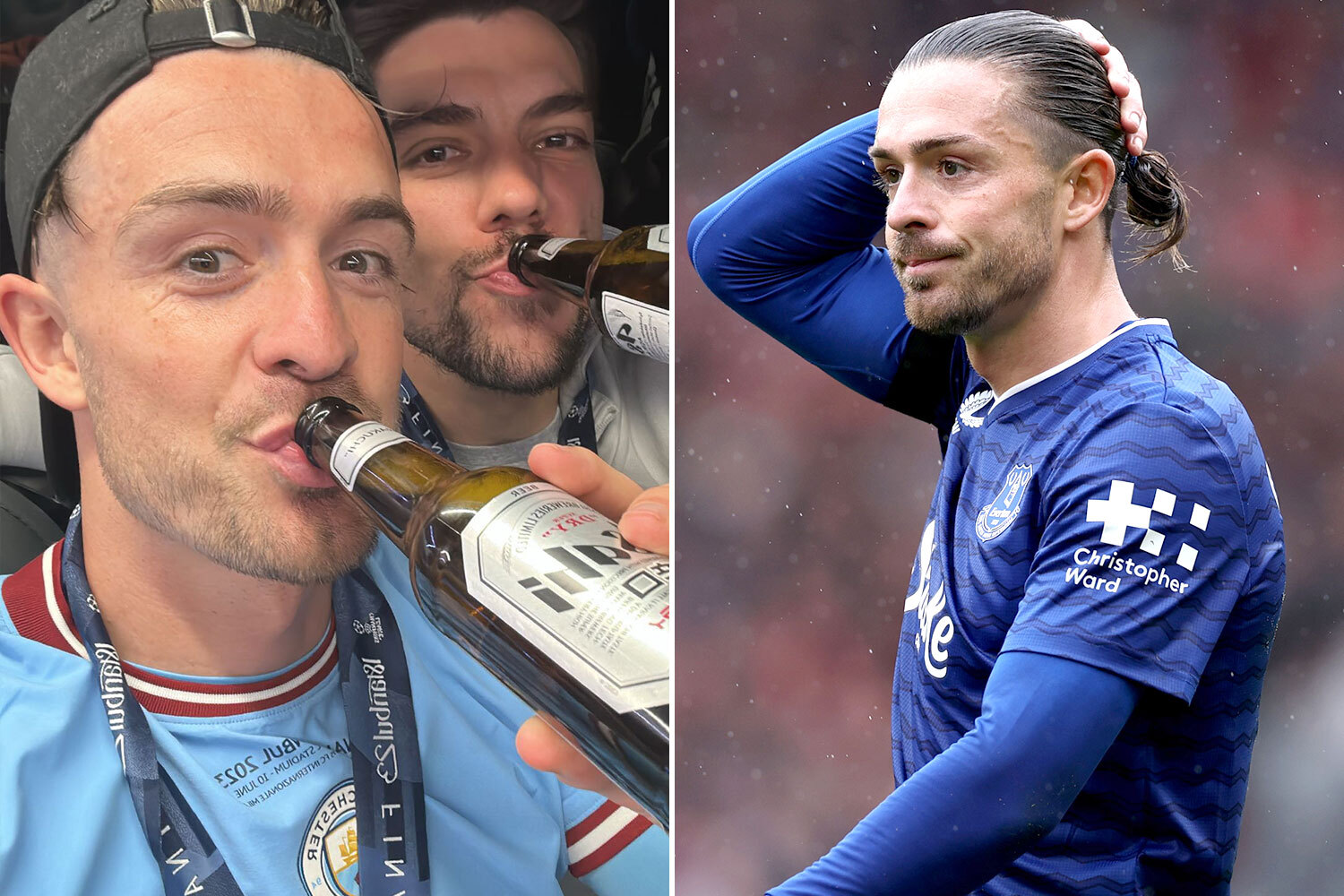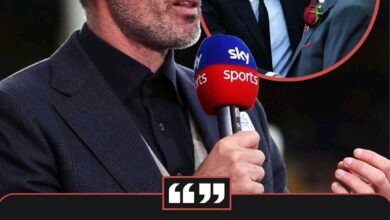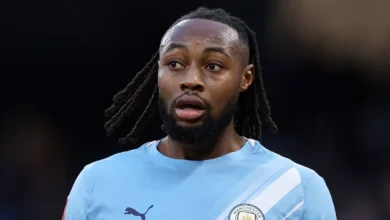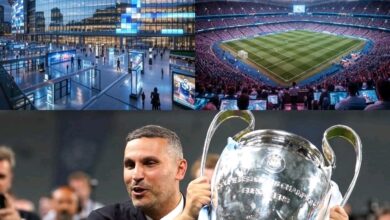Jack Grealish: From City Struggles to Everton Renaissance – A Story of Redemption and Self-Reflection

In the unforgiving world of elite football, where every decision is scrutinized and every misstep magnified, few players have navigated the complex balance between personal freedom and professional responsibility quite like Jack Grealish. The 30-year-old England international’s recent candid admission about his time at Manchester City offers a fascinating glimpse into the mind of a player who has experienced both the highest peaks and most challenging valleys of modern football.
The Honest Reckoning
Grealish’s recent interview with Sky Sports represents a moment of remarkable honesty in an era where footballers are often coached to deliver sanitized soundbites. His admission that he “didn’t help himself” during certain periods of his Manchester City career is both refreshing and revealing. It’s the kind of self-awareness that suggests genuine growth and maturity from a player who has always worn his heart on his sleeve.
“Sometimes, I’ll be honest with you, I probably haven’t picked the right times,” Grealish acknowledged, addressing the elephant in the room that has followed him throughout his career. “At City, I didn’t help myself at times, I’ll openly say that, but then I don’t think it was all down to that.”
This measured response demonstrates a player who has clearly spent considerable time reflecting on his journey. Rather than completely absolving himself or placing blame entirely elsewhere, Grealish strikes a nuanced balance that acknowledges his role while recognizing the complexity of his situation at City.
The Treble Glory and Its Aftermath
To understand Grealish’s current position, one must first appreciate the context of his Manchester City experience. The 2022/23 season represented the absolute pinnacle of his career to that point. As an integral part of Pep Guardiola’s treble-winning squad, Grealish tasted success at the highest level of club football. The Champions League, Premier League, and FA Cup all resided at the Etihad Stadium, and Grealish had played his part in this historic achievement.
The celebrations that followed became the stuff of legend. Grealish’s exuberant, unfiltered joy during the treble parade captured the imagination of fans worldwide. His uninhibited celebration of success was both endearing and, in hindsight, perhaps indicative of a approach to life that would later create complications.
Those iconic celebrations, while beloved by fans, may have also highlighted a fundamental tension in Grealish’s character. His authenticity and genuine emotion – qualities that make him so likeable – also represent the very traits that can sometimes conflict with the rigid professionalism demanded at the highest levels of modern football.
The Guardiola Conundrum
Pep Guardiola’s Manchester City operates as a finely-tuned machine where every component must function in perfect harmony. The Catalan manager’s tactical philosophy demands not just technical excellence but also unwavering discipline and consistency. Players must be available, focused, and ready to perform at their peak whenever called upon.
For a player like Grealish, whose natural exuberance and desire to “live life and enjoy myself” occasionally conflicted with these demands, the relationship became increasingly strained. The England international found himself gradually sliding down the pecking order, despite his undeniable talent and previous contributions to the club’s success.
This decline wasn’t necessarily about ability – few would question Grealish’s technical skills or his capacity to influence games. Instead, it appeared to be about reliability and the kind of total commitment that Guardiola expects from his players. In a squad filled with consummate professionals who live and breathe football, any deviation from the expected standards becomes magnified.
The Psychology of Performance
Grealish’s revelation that he’s “at his best when he feels loved” provides crucial insight into his psychological makeup as a performer. This vulnerability, which he openly acknowledges, is both a strength and a potential weakness in professional sports. On one hand, it drives him to perform for managers and fans who show faith in him. On the other, it can create fragility when that support wavers.
“I’m quite vulnerable off the pitch,” Grealish admits, a statement that requires considerable courage in the hyper-masculine world of professional football. This emotional honesty explains much about his career trajectory and his need to find environments where he feels valued and appreciated.
The psychological aspect of football performance is often underestimated by casual observers, but for players like Grealish, emotional well-being and professional success are inextricably linked. When he feels supported and trusted, his natural creativity flourishes. When doubt creeps in, both from external sources and internally, his performances can suffer.
The Everton Renaissance
David Moyes’ decision to bring Grealish to Everton on loan has proven to be inspired, both for the club and the player. The Toffees manager’s approach to handling Grealish demonstrates a sophisticated understanding of man-management that extends beyond simple tactical instructions.
Moyes’ philosophy of telling Grealish to “go and do what you want to do” when in possession represents more than just tactical freedom – it’s an expression of trust and belief that directly addresses the player’s psychological needs. This approach acknowledges Grealish’s unique qualities while providing the structure and support he requires to thrive.
The Scottish manager’s admission that Grealish is “even better than I thought” suggests that the player’s reputation may have actually preceded his true ability. At Everton, freed from the intense scrutiny and tactical constraints of City, Grealish has rediscovered the joy and creativity that made him one of England’s most exciting prospects.
“He probably needs a bit of love and attention,” Moyes observed with remarkable insight. “He needs the games as well.” This simple statement encapsulates everything that was missing from Grealish’s City experience – regular playing time, emotional support, and the confidence that comes from feeling wanted.
The Wider Context of Modern Football
Grealish’s situation highlights broader issues within contemporary football culture. The increasing professionalization of the sport, while bringing many benefits, has also created an environment where players’ personal lives are subject to unprecedented scrutiny. The expectation that footballers should be perfect role models 24/7 can be both unrealistic and psychologically damaging.
The pressure to maintain an image of constant professionalism can stifle the very personalities and characteristics that make players special. In Grealish’s case, his natural charisma and love of life – qualities that endear him to fans – occasionally conflicted with the institutional expectations of elite football clubs.
This tension raises important questions about the balance between personal freedom and professional responsibility. While players rightfully face higher standards given their privileged positions and influence, the human cost of these expectations is often overlooked.
Leadership and Maturity
One of the most encouraging aspects of Grealish’s current situation is the evidence of genuine personal growth. His willingness to acknowledge past mistakes without making excuses demonstrates a maturity that bodes well for the remainder of his career. This self-awareness suggests that his experiences at City, while challenging, have ultimately contributed to his development as both a player and a person.
The fact that he can openly discuss his struggles without bitterness or resentment speaks to a character that has been tested and strengthened by adversity. Rather than allowing setbacks to define him, Grealish appears to have used them as learning experiences.
The England Dimension
Grealish’s renaissance at Everton has significant implications for his international career. With the World Cup approaching next summer, his improved form and rediscovered confidence make him a compelling option for England manager Thomas Tuchel. His ability to provide creativity and unpredictability from wide positions could prove crucial in major tournament football.
The timing of his Everton loan could hardly be better from an England perspective. Regular first-team football, combined with his renewed confidence and maturity, positions him perfectly to make a strong case for World Cup selection. His experience of winning major trophies, combined with his current form, makes him an attractive proposition for any manager.
Lessons in Redemption
Perhaps the most significant aspect of Grealish’s story is its demonstration that careers are rarely defined by single periods or decisions. His struggles at City, while disappointing, do not diminish his achievements or potential future contributions. Instead, they represent a chapter in a larger narrative of growth, resilience, and ultimately, redemption.
The football world is often quick to write off players who experience setbacks, but Grealish’s situation illustrates the importance of patience and the value of finding the right environment for individual talents to flourish. His success at Everton serves as a reminder that player development is an ongoing process that doesn’t end when contracts are signed or trophies are won.
The Human Element
In an era of increasing commercialization and tactical sophistication, Grealish’s story serves as a reminder of football’s fundamentally human elements. Behind the statistics, transfer fees, and tactical analyses are real people with emotions, insecurities, and personal struggles. His vulnerability and honesty provide a refreshing counterpoint to the often sterile narratives that dominate modern football discourse.
His admission that he needs to “feel loved” to perform at his best might seem weakness to some, but it actually represents a profound understanding of his own psychology and requirements for success. This self-knowledge, hard-earned through difficult experiences, positions him well for sustained success in the latter stages of his career.
Looking Forward
As Grealish continues his journey at Everton, his story serves as both a cautionary tale and an inspiration. The cautionary element lies in the reminder that talent alone is insufficient at the highest levels of football – professional habits, timing, and decision-making are equally crucial. The inspiring aspect comes from his ability to acknowledge mistakes, learn from setbacks, and find renewed purpose and joy in his football.
The partnership between Grealish and Moyes appears to be bringing out the best in both individuals. For Moyes, it represents vindication of his man-management approach and his ability to handle complex personalities. For Grealish, it offers the platform to remind everyone of his considerable abilities while demonstrating his personal growth and maturity.
Conclusion
Jack Grealish’s candid reflections on his Manchester City experience and his renaissance at Everton tell a story that transcends football. It’s a narrative about human nature, personal growth, and the importance of finding the right environment to flourish. His journey from treble winner to peripheral figure to born-again creator illustrates both the fragility and resilience of elite athletes.
Most importantly, Grealish’s story is far from over. At 30, with renewed confidence and hard-earned wisdom, he has the opportunity to write some of the most significant chapters of his career. His honesty about past mistakes, combined with his evident talent and improved decision-making, suggests that his best days may well lie ahead.
In a sport often criticized for its lack of authenticity, Jack Grealish remains refreshingly genuine. His willingness to be vulnerable, to acknowledge mistakes, and to openly discuss his emotional needs makes him a compelling figure in modern football. As he continues his journey at Everton, fans and observers alike will be watching with interest to see how this latest chapter unfolds in what has already been a fascinating career.















